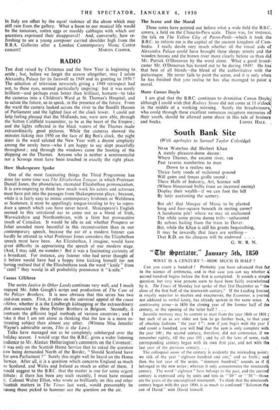— arty 'pectator," January 5th, 1850
WHAT IS A CENTURY ?—HOW MUCH IS HALF ?
Can you count a hundred ? Nobably you have advanced thus fart in the science of arithmetic, and in that case you can say whether a: second hundred begins before the first is completed. It sounds a simple question, but very wise persons seem to have been fairly overwhelmed by it. The Times of Monday last spoke of that 31st December as " the close of the first half of the nineteenth century." If the Leading Journal is royally superior to niceties and exactnesses, the Examiner, a journal( not addicted to verbal laxity, has already spoken in the same sense. A controversy arose—is 1850 the closing year of the former half of tho' century, or the opening of the latter half ? .
Juvenile memory may be content to start from the year 1800 or 1801 1 but such of us as are older are fain to go further back, to that year of obsolete fashions " the year 1 ": now if you begin with the year 1.' and count a hundred, you will find that the sum is only complete with the year 100 ; the second century, therefore, did not commence, if wo remember rightly, till the year 101 ; and by all the laws of sense, each corresponding century began with its own first year, and not with the last year of the previous century. . . .
The colloquial name of the century is evidently the misleading point:, we talk of the year " eighteen hundred and one," and so forth ; and then the last year of the series, " nineteen hundred," sounds as if it belonged to the new series ; whereas it only consummates the nineteenth century. The word " eighteen " here belongs to the past, and the current century is expressed only by units and tens in "'49 " or "'50 "—those are the years of the uncompleted nineteenth. To think that the nineteenth century began with the year 1800, is as much to confound "Solomon the son of David " with David himself.






































 Previous page
Previous page